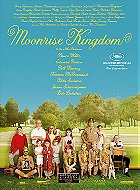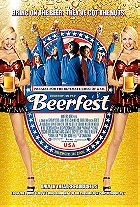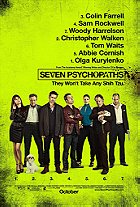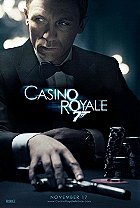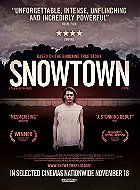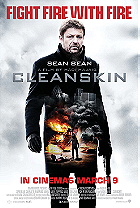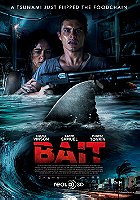After Christmas with the Kranks, Surviving Christmas, Fred Claus, Four Christmases and similar interminable dreck, a lot of people groan at the very notion of a family Christmas film as if they're on their way to a root canal. Not to mention, Christmas movies with Tim Allen are typically a special kind of awful. With this in mind, it's surprising to report that 1994's The Santa Clause - a Disney-produced Christmas flick with Tim Allen - is enjoyable, wholesome family entertainment with a few genuine laughs and some heartfelt sentiment. The debut vehicle for TV sitcom star Tim Allen (Home Improvement), The Santa Clause was a surprise hit for Disney back in 1994; grossing over $144 million in the United States alone. Being a PG-rated Christmas film, it is aimed more at children than adults and is a feel-good fantasy about belief, dreams and childhood innocence, but the film is nonetheless firmly rooted in good old-fashioned holiday spirit; something that's missing from 95% of other contemporary yuletide movies.

Tim Allen plays Scott Calvin; a successful, divorced toy executive whose latest project has earned him great respect and praise. Unfortunately, his home life is less successful. On Christmas Eve, Scott is allowed to spend time with his son Charlie (Lloyd), though Charlie is less than keen about seeing his old man. During the night, Charlie and Scott are awakened by a loud clatter on the roof. Suspecting a prowler, Scott goes outside and catches Santa in the act. Losing his balance, the big man falls off the roof and is killed instantly. Spurred on by Charlie, Scott climbs into the sleigh, dons Santa's suit, and spends the remainder of the night delivering presents to children across the world before ending up at the North Pole. Head elf Bernard (Krumholtz) informs Scott that by slipping on the red suit, he has activated the "Santa Clause," making him contractually bound to carry out Santa's annual duties. Making matters worse, Scott's subsequent changing appearance and Santa-esque eccentricities prompt his ex-wife Laura (Crewson) to file for sole custody of Charlie.
The Santa Clause is a fun, heart-warming movie which is perhaps the best contemporary portrayal of Santa and his fascinating universe. Such a feat was not pulled off with cheap emotional manipulation or hokey dramatics about the power of believing (like The Polar Express), but instead by using gentle humour and a heavy dose of contemporary life. Custody battles, divorce, scepticism, police and psychiatry all factor into this tale, making it relevant for modern audiences. Fortunately, though, these elements do not make the proceedings dreary. In fact, it actually gives the story real weight, grounding the more fantastical elements. Moreover, it extends the appeal of The Santa Clause to more mature viewers who'll have more to latch onto than mindless saccharine. The film is not quite airtight, though, as the year separating the two Christmases depicted in the movie flies by too quickly, feeling like weeks rather than months. Also, is anyone else horrified by the notion that Scott got the job by killing Santa, and nobody in the North Pole even cares?

There are echoes of Miracle on 34th Street throughout The Santa Clause, particularly in the theme of "Is it crazy to believe in Santa?" that's invoked in the scepticism everyone faces when news of Scott's Christmas adventure begins to spread. Accomplished television director John Pasquin (who worked on Allen's Home Improvement) has crafted an understated, character-driven film here. Eschewing obvious pitfalls and childish gags (with a few exceptions, such as a fart joke), Pasquin and his crew concentrated on the natural humour found within Calvin's crisis of identity. Plenty of funny situations stem from this, and Scott's consistent one-liners are side-splitting. The Santa Clause also answers a number of cynical questions about the Santa Claus myth; it addresses how Santa fits through chimneys and gets into homes without chimneys, and how Santa is able to deliver presents across the world in one night. The only head-scratching plot hole - and this applies to most Santa movies - is simple: how can adults not believe that there's a Santa when he delivers presents each year that the adults would find to be of unknown origins?
The script by Leo Benvenuti and Steve Rudnick was tailor-made to suit Tim Allen's sarcastic, dry line delivery. Allen is more of a personality than an actor, but his performance as Scott is effective, heartfelt and genuine - never does it feel as if Allen is simply reprising his role from Home Improvement. On the other hand, The Santa Clause is let down by a notably ineffective child actor in Eric Lloyd, who whinges and whines but comes across as irritating. In the throwaway roles of Laura and Neil, Wendy "watch me be emotional" Crewson and Judge "I always play the same role" Reinhold are merely passable. Fortunately, as Bernard the elf, David Krumholtz is a constant delight. It's a bit unfortunate, though, that Krumholtz was given such a small amount of screen time.

In spite of its flaws, The Santa Clause is a hugely funny, sweet fantasy suitable for family viewing. The best children's movies are those that kids will love, and will continue to love as they grow up and become adults. The Santa Clause is just such a movie - it will appeal to children and it will keep adults entertained, making it an ideal slice of family entertainment for the festive season. The film has unfortunately been diminished by a couple of horrendous sequels, but rest assured that this first instalment is something special.
7.9/10
 Login
Login
 Home
Home 183 Lists
183 Lists 1662 Reviews
1662 Reviews Collections
Collections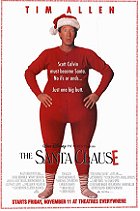
 0 comments,
0 comments, 